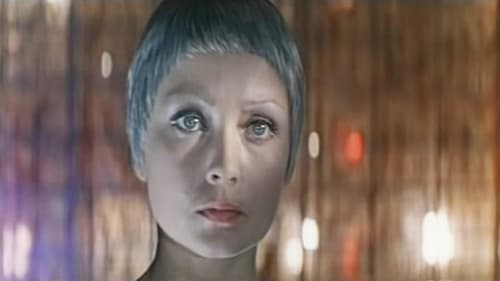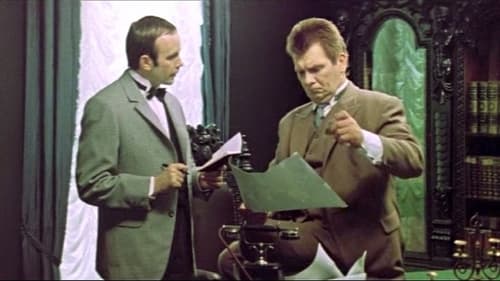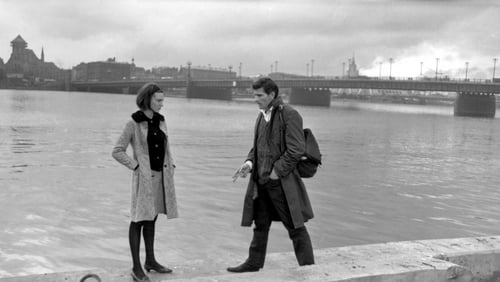
Oļģerts Kroders
Nacimiento : 1921-08-09, Latvia
Muerte : 2012-10-10
Historia
Родился 9 августа 1921 года в Риге в семье известного журналиста, театрального критика и переводчика Роберта Кродерса и актрисы Герты Вульф. Дядя — журналист Артурс Кродерс, брат — журналист и художественный критик Гунарс Кродерс. Окончил рижскую 2-ю гимназию (1940). Учился на филологическом и философском факультетах Латвийского университета. Был репрессирован (14 июня 1941 г.) и находился в ссылке в Сибири. После возвращения в Латвию в 1956 году увлёкся сценой, участвовал в постановках любительской труппы Центрального клуба работников полиграфической промышленности. Работал помощником режиссёра в Театре Дайлес, публиковал в печати свои наблюдения репетиционных будней театра. Самостоятельную профессиональную карьеру театрального режиссёра начинал в Лиепае. Режиссёр Лиепайского театра (1959—1963). Окончил Высшие режиссёрские курсы Государственного института театрального искусства в Москве (1964). Режиссёр Валмиерского драматического театра (1964—1974), главный режиссёр Лиепайского театра (1974—1990). С 1990 года режиссёр Национального театра, в 1990—1995 его художественный руководитель. Принимал участие в постановках латвийских театров в качестве приглашённого режиссёра. Играл на сцене Нового Рижского театра. Снимался в кино на нескольких киностудиях. Дебютировал на Рижской киностудии в фильме режиссёра Роланда Калниньша «Дышите глубже» (1967), где сыграл небольшую роль. Автор биографической книги воспоминаний «Попробую быть откровенным» (Mēģinu būt atklāts, 1993). Неоднократный номинант и лауреат театральной премии «Spēlmaņu nakts». За выдающийся вклад в дело национального театрального искусства награждён высшей латвийской наградой — орденом Трёх звёзд. Был женат в первом браке на кинокритике Майе Аугсткалне, во втором — на режиссёре Рите Кродере. Умер в Валмиере 10 октября 2012 года.

Self
What does the question “to be or not to be?” mean? 86 year-old director Olģerts Kroders stages his fourth production of Shakespeare’s Hamlet at the Valmiera Drama Theatre. The theatre is more than merely his occupation, for he not only works there but also spends all of his time in it. The film depicts his routine and the rehearsal process up until the premiere, and provokes a dialogue using the four actors who have all played Hamlet in the different productions. Kroders’s life and the lives of the actors tell the history of Latvia and the fates of different generations.

A young woman, Regina, has been killed in her apartment. Investigator Anderson holds Regina’s husband as a suspect for a murder because he is unable to remember his location at the time of the fateful event. Gradually, Anderson is convinced that Oto has not only killed his wife, but he also tries to hide his true identity – notorious criminal Schmit.

A young woman agrees to model for an artist as Virgin Mary. His strange influence triggers her repressed sexual urges causing her to have delusions and nightmares about spiders and other grotesque imagery.

About the death of Aleksandr Pushkin, the leading poet and writer of Russia, who was shot on a duel and died when he was 37.

A story about ten years old Raymond who wants to learn how to drive a car.

Professor Dowell
El profesor Dowell y su asistente, el cirujano Dr. Kern, están trabajando en la resurrección de personas muertas. El Dr. Kern mata a Dowell en un accidente de coche previamente planificado y mantendrá con vida la cabeza de este para extraer de ella secretos científicos…

Post-war Latvia. Francis' gang operates in a small town and the new KGB agent Juris Vilks has been asked to infiltrate his gang and gain his confidence.

Intelligence-diversionary group of athletes who know how to shoot snipers, run, jump, feel free in the water and under water, to withstand the monstrous load of hand-to-hand fights, will be able to reach the goal only going together, passing the task as a relay. Seven of them. Among them is a girl swimmer. It will be the most difficult, the last stage of the journey. The plot is based on the real facts of the great Patriotic war.

After the train conductor Pētersons receives money transfer from an unknown source, he suspects foul play involving the cargo he's transporting. He decides to do his own investigation into the matter, not realizing that he's putting himself and those around him in danger.

On his 18th birthday, Māris receives a motorcycle from his parents, and, while driving around with his friends, they pass a wedding car. The bride, Inese, is entering a loveless marriage, so she allows Māris to "steal" her from the wedding reception.

Grass
In the surreal aftermath to a plane crash at sea Dr. Iven an eminent scientist is the only survivor to be taken into the confidence of the alien rescuers. He learns that the world with its weapons of mass destruction is not ready for the wonders of the culture of the pacifist visitors. The situation is further complicated by the close relationship that blossoms between the doctor and the female alien, and due to this relationship he is the only survivor allowed to retain his memory of the events, unlike the other survivors including his wife, whose memories are erased.

Latvia in the 1920s. The enterprising Edgars Ceplis establishes a company to produce bricks from Latvian clay for export. Many are involved in his project, hoping for the huge profits the venture promises. Ceplis soon becomes infatuated with his office typist Austra Zīle and starts neglecting the business...

Gunar Janson
In the experimental clinic, a batch of valuable drug was stolen. Major Grigast suspects that someone from the clinic is involved in this. He entrusts this complex matter to a young investigator Mara. An investigation leads her to a distant border town in the south of the country, where the offender intended to ship the drug abroad.

Cezars Kalnins, portrayed by "Latvian Harrison Ford” Uldis Pucitis, installs telephones by day and composes pop songs by night. The puritan Soviet censorship deems Cezars’s lyrics "unsuitable and frivolous” and "unfit for the Soviet youth”. In fact, it can be argued that this assessment matches the opinion of the Soviet cinema authorities in regard to this film as a whole, since "Four White Shirts” was immediately banned and released in cinemas only in 1986. The creative boldness and stubbornness, evident in both Cezars’s bitingly ironic verses and the film’s unconventional narrative structure and fresh, new-wave-inspired mode of expression, turned out to be equally problematic for the hero and for the film itself, as well as for its director whose representation of the actual mechanisms of Soviet censorship ended up too realistic for his own good.










